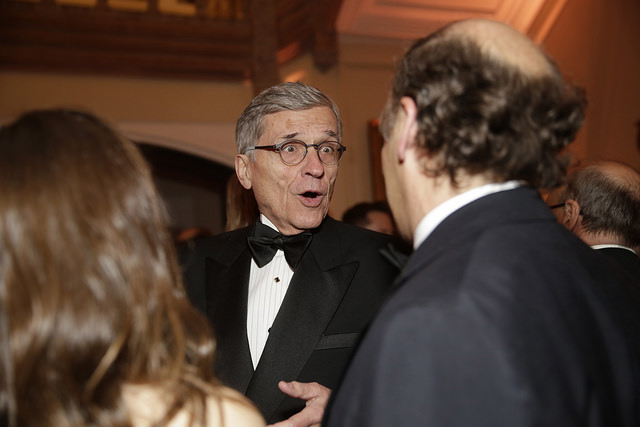
Chairman Wheeler’s recent speech at his alma matter, Ohio State University, did not tell the full story about the Federal Communications new Open Internet Order.
The Open Internet Order will increase costs, decrease investment, and increase regulatory uncertainty. Put simply you are going to see costs rise and choices diminish.
Chairman said that special interests in Washington would not sway his decisions, but Washington DC special interest did contribute a great deal to his transition away from light-touch 706 regulations and heavy-handed Title II regulation.
The Ford Foundation and Open Society Foundations (funded by billionaire George Soros) were huge funders of the pro-Internet- regulation organizations. In its Open Internet Order, the FCC cited Soros and Ford Foundation funded groups 206 times. This is clearly disproportionate to free-market proponents who were cited five times (four citations to TechFreedom and one to the Free State Foundation).
Its hard to say whether the FCC even considered other points of view. When the FCC asked for public comments on its proposal in May 2014, the proposal focused on Section 706 regulation, not Title II. This gives opposing views no ability to submit research and comments about Title II effects, when they believe the question is something completely different. As a result, many experts believe the FCC could have violated the administrative Procedures Act by failing to give adequate notice of the rules it adopted.
When Wheeler says “Open Internet,” that’s code for public utility regulation. The Chairman will try to tell you different, but broadband reclassification as a Title II telecommunications service by definition equals rate regulation. Plus, under the FCC’s general Internet conduct standard, the FCC explicitly invites consumer rate complaints, which upon receiving these complaints, the FCC welcomes the opportunity to engage in rate regulation to determine whether the rates charged are ‘just and reasonable’.
Chairman Wheeler would have you believe that Title II is some kind of Net Neutrality light-touch regulation. Title II is not Net Neutrality, which includes the basic principles of no blocking, non-discrimination of content, and transparency. It is Public Utility regulation established in the 1930s.
Wheeler positions our choices as Title II public utility style regulation, or “we can have the people who operate the networks making the rules for the Internet.” This is a false choice. The FCC had a choice to implement a basic set of rules using light-touch regulation under Section 706, or an onerous set of rules under a Title II framework. It chose the latter. The FCC’s original net neutrality rules were based on Section 706 authority – not Title II.
He says, “we can have an Open Internet and light-touch regulation that encourages innovation and consumer choice.” We can have that, but we won’t because the regulations the FCC has passed will discourage innovation. With its 1934 monopoly era rules and micromanagement practices, with many regulations yet to be determined, nothing about Title II is ‘light-touch’. It is heavy-handed and onerous regulation of one of the most dynamic and innovative inventions in history.

